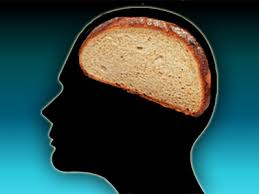 Okay, “Grain Brain” is not something that immediately tells you what it is all about. Grain Brain is the phrase that neurologists and other brain scientists are using to describe a link between blood glucose levels from high carbohydrate consumption and dementia. A book by the same name is going into its 15th straight week on the New York Times bestseller list, so the concept is getting a lot of attention. But what does it mean for you or an older loved one in your orbit?
Okay, “Grain Brain” is not something that immediately tells you what it is all about. Grain Brain is the phrase that neurologists and other brain scientists are using to describe a link between blood glucose levels from high carbohydrate consumption and dementia. A book by the same name is going into its 15th straight week on the New York Times bestseller list, so the concept is getting a lot of attention. But what does it mean for you or an older loved one in your orbit?
In a scientific study recently published in the prestigious New England Journal of Medicine, researchers followed a large group of men and one of women for an average of almost seven years. During this nearly seven years they regularly measured the individuals fasting blood glucose levels. At the end of the study they found that people with higher blood glucose levels were more at risk for developing dementia that those whose levels were not as high. They found this to be true even with people who did not have diabetes. It is true, that this kind of study cannot say that increased blood sugar levels actually cause dementia, but the link is sufficiently clear that the New England Journal would publish the findings. Scientists also find that not all grains have the same negative effect on cognitive ability. Those with the highest gluten content seem to be the worst offenders.
This is not the first research to show negative health outcomes associated with elevated blood sugar. Researchers have well-established proof that a high carbohydrate diet and the associated elevation of blood sugar poses a risk to one’s heart and to the immune system. And there are other studies. in a 2012 study in the Journal of Alzheimer’s Disease, researchers reported that risk for cognitive decline was 89% greater among those on a high carb diet; those on a high fat intake diet saw a 44% decrease in their risk for cognitive compromise. And researchers in another British journal, Lancet Neurology, estimated based on their findings that as many as 54% of the cases of Alzheimer’s Disease in the United States could be avoided with exercise, weight reduction and steps to reducing blood pressure.
This last study really drives home a great point. If you are a caregiver to an older loved one, you both will see great returns on a few basic investments of time and effort. Increase the daily amount of exercise, reduce the carb intake and the rewards will be weight loss, reduced blood pressure, a healthier heart, a more vigorous immune system and more acute cognition. Sounds like a really great return on investment to me. So, will you and your older loved ones be among those who avoid the “grain brain?”
Charlotte Bishop is a Geriatric Care Manager and founder of Creative Care Management, certified professionals who are geriatric advocates, resources, counselors and friends to older adults and their families in metropolitan Chicago. Please email your questions to info@creativecaremanagement.com.






